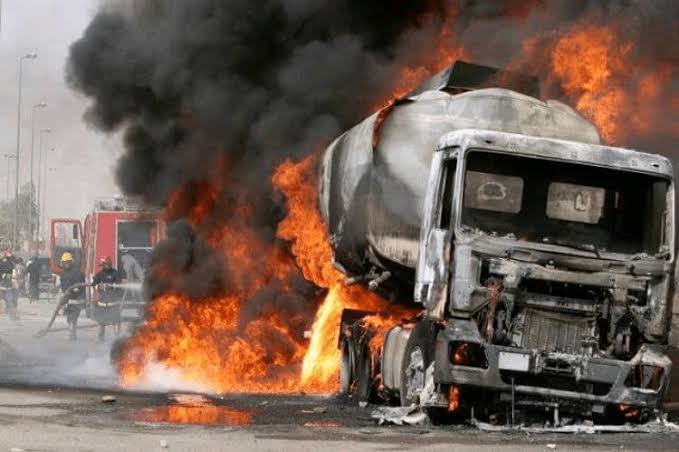A senior Nigerian disaster management official has issued a stark warning against scavenging fuel from overturned petroleum tankers, calling the practice a “suicide mission” that endangers lives. Aisueni Mmandu, Head of the National Emergency Management Agency’s (NEMA) Uyo Operations Office, sounded the alarm during a public safety campaign in Ikom, Cross River State, emphasizing the lethal risks of such actions amid rising tanker-related disasters.
Speaking at the Monday event focused on preventing tanker accidents and fires, Mmandu stressed that fallen fuel trucks pose an immediate fire hazard. “When you see a fallen tanker, it is not the time for scooping fuel. A single spark can ignite a blaze, burning people to death,” she said, referencing recent explosions in states including Niger, Jigawa, Lagos, and Cross River. These incidents, she noted, have claimed hundreds of lives and destroyed millions in property over recent months.
While tanker accidents are often preventable, Mmandu identified reckless driving, vehicle overloading, poor maintenance, and inadequate road infrastructure as primary causes. She urged government bodies, transport unions, and community leaders to prioritize safety measures, including stricter enforcement of regulations and public education campaigns. “Reporting unsafe driving and ensuring proper vehicle checks can save lives,” she added.
The forum, organized by NEMA in collaboration with the Federal Road Safety Commission (FRSC) and fire service authorities, marked the first joint effort to address the issue in Ikom. Etetim Otom, FRSC’s Public Enlightenment Officer for the region, criticized tanker drivers who disregard road safety, stating, “Some behave like kings of the road, forgetting other users deserve to live.” His remarks echoed calls for empathy and accountability among drivers.
Ushie Atusu, Deputy Controller of the Cross River Fire Service, praised the initiative as a critical step toward curbing preventable tragedies. “This collaboration has exposed root causes of past disasters,” he said, urging sustained partnerships.
Yahaya Buhari, Ikom branch chairman of the Petroleum Tanker Drivers Association, pledged to implement lessons from the event, calling the training “life-changing.” Attendees emphasized the need for ongoing dialogues to reduce risks in a nation where fuel transportation remains a high-stakes industry.
The awareness drive highlights growing concerns over road safety and disaster preparedness in Nigeria, where tanker accidents frequently escalate into humanitarian crises. Authorities now face heightened pressure to address systemic gaps—from driver training to infrastructure upgrades—amid pleas for communities to prioritize safety over short-term gains.
